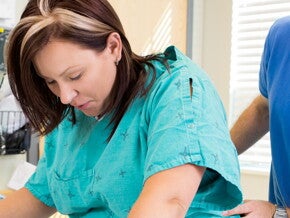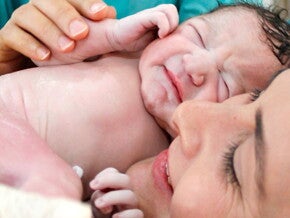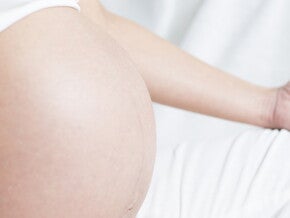
Choosing a caregiver
Consider where you wish to give birth to the baby, who will care for you during your pregnancy and the financial implications of your choice. Regular medical check-ups and good care throughout pregnancy will reduce the risks to you and your baby.
State-subsidised hospitals and clinics
- Obstetrician.
- Midwife.
Private hospitals and clinics
- Obstetrician.
- General practitioner.
- Midwife.
Home birth
- Midwife.
- General practitioner.
- Obstetrician.
What to ask:
- Ask the doctor and midwife about their qualifications and experience.
- Ask about fees charged.
- Who will respond to your calls when the caregiver is off duty or not on call?
- Do they have delivery privileges at more than one hospital?
- Will they consider home birth?
Set up an initial appointment and prepare your screening questions. Time is of the essence during this appointment, so select a few key questions to determine whether or not the caregiver’s philosophy about pregnancy is similar to yours.
Consult the following sources for more information on childbirth education classes:
- Caregiver.
- Place of delivery.
- Family and friends.
- Local childbirth associations.
Related articles


Childbirth and parent education
Attending childbirth and parent education classes is an excellent way to prepare for the birth and develop a support system.
5 mins to read


Labour
As labour starts, a mother’s mood changes and she becomes less aware of what is happening outside her body, and more aware of what is happening inside her body.
5 mins to read

Further comfort measures for pain relief
Distractions like breathing, visualising or fixing on one point can take your mind off the pain.
5 mins to read

Levels of fitness
First trimester
Your fitness is likely to decrease. Listen to your body and only do what you feel comfortable doing.
Second trimester
5 mins to read

Monitoring your response to exercise
It is important to monitor your response to your exercise programme by taking your pulse-rate before, during and after exercise.
5 mins to read

Nutrition during pregnancy
By taking responsibility for your body, you can maximise your level of wellbeing and enjoy good health.
Good nutrition is of the utmost importance during your pregnancy
5 mins to read


The third stage of labour
This stage lasts from the birth of the baby until the placenta is delivered, usually from 5–20 minutes.
5 mins to read


Personal considerations
You may need to consider some personal issues before you become pregnant.
1 min to read

Nutrition checklist
NUTRITION CHECKLIST
Are you eating enough nutritious food with sufficient nutrients, kilojoules, vitamins?
1 min to read

Common nutrition-related problems
The influence of hormonal changes, and the effect of the changes in the size of the growing uterus, can lead to eating complications during pregnancy.
5 mins to read

Checklist - maternity ward suitcase
*Check whether the maternity ward has a list of the items you will need.
Items for hospital stay
5 mins to read

Medication for pain relief
In a normal, uncomplicated labour and delivery, the use of medication is not always necessary. Your own resources are often enough.
5 mins to read

Criteria for prenatal classes
Instructor’s credentials, for example, midwife, physiotherapist.
Instructor’s specialised training in childbirth education.
5 mins to read


Conception
The fertilised egg divides into two identical cells – then four, then eight, then 16, and then many billions, and 266 days later – your baby.
1 min to read